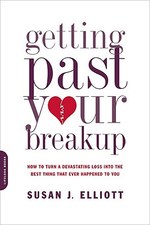SEPARATION AND DIVORCE
I offer therapeutic support for adults dealing with relationship separation and divorce. It is important to have a place to make sense of the many feelings that a person may experience after a relationship ends. This process can be more or less challenging depending on situational factors, including who initiated the separation, whether it was anticipated, and whether a 3rd party was involved in the dissolution. Adjusting to life after separation can also be compounded by other life factors including age, the presence or absence of other life stressors, one's ability to effectively experience and deal with negative emotion, and the number of social supports a person has in their life. The process of adjustment may be additionally complicated by it triggering unresolved feelings related to previous losses in one's life. Navigating through all of the above can be challenging, though it is important to take the time to reflect on what has happened to move forward in a positive light. By taking care of yourself, you also take care of others who might be dependent on you, which may include children.
I also offer services for children (10+) and teens whose parents have separated and who may be in need of their own therapeutic support. However, please be aware that in these latter situations, when a formally custody agreement is not yet decided or when a joint legal custody exists between parents, I will need consent from both parents to begin a course of child or adolescent therapy. Also be aware that in such cases, the role of the psychologist is to be a support to the child, which does not involve taking sides with either parent or having opinions about parental capacity that could be intended for court use.
Tips for Parents
- Never say anything bad about the other parent in front of your child. You need to give them permission to be able to continue loving the other parent and to accept their love. Do not let your own feelings get in the way of that. In addition, when they get older and suspect that you were distorting things in a way that may have negatively impacted their relationship with the other parent they will resent you for it.
You do not have to lie to your child, but there are some things that are not age appropriate for children to hear and things they do not need to hear. When the other parent drops the ball, get used to saying things like: "I think they are doing the best they can...", "mom/dad must have forgot xyz, but I know they love you and it was probably just a mistake...", "Just because mom/dad is angry with me, does not mean they are angry at you..." "That's between your mom and I...", and so on.
- If you hear something inappropriate coming from the other parent - through the child - do not encourage it further by asking about details or relaying messages back. This is how kids can get 'caught in the middle' between parents. Children are excellent at 'reading' their parents communication. If this goes on for too long, they may begin telling you want they think you want to hear (e.g. saying something negative about the other parent), which may make it difficult for them to say what they really think or feel. If your child is being exposed to inappropriate comments or materials, try to brush it off by saying "mom/dad was probably just mad when they said that..." or "these kinds of things are for your mom/dad and I to sort out and you do not need to get involved...", then try to bring up your concern with the other parent when you are in a calm state of mind and when your child is not present.
Recommended Reading
Getting Past Your Breakup: How to Turn a Devastating Loss into the Best Thing That Ever Happened to You.
(2009; Author: S. Elliott)
This is a book about overcoming the feelings of pain, grief, and loss related to a relationship ending. The author provides some concrete suggestions, including 'rules of disengagement' (e.g. why 'no contact' with your ex is often best) and strategies for breaking free of obsessional thoughts about one's ex-partner and feelings of self-blame. The author also encourages readers to engage in thoughtful self-reflection about one's own part in the relationship dissolution and how to turn it into an opportunity for self-growth and transformative action in future relationships.
Two Homes
(2003; Author: C. Masurel)
This book helps children (ages 3-5) make sense of their parent's divorce and the numerous changes they experience. While many things will change (e.g. two homes, two bedrooms, two sets of rules), it reassures children that they are not losing their parents to divorce. The book clearly emphasizes that children will still be loved by both parents regardless of their living arrangements.



